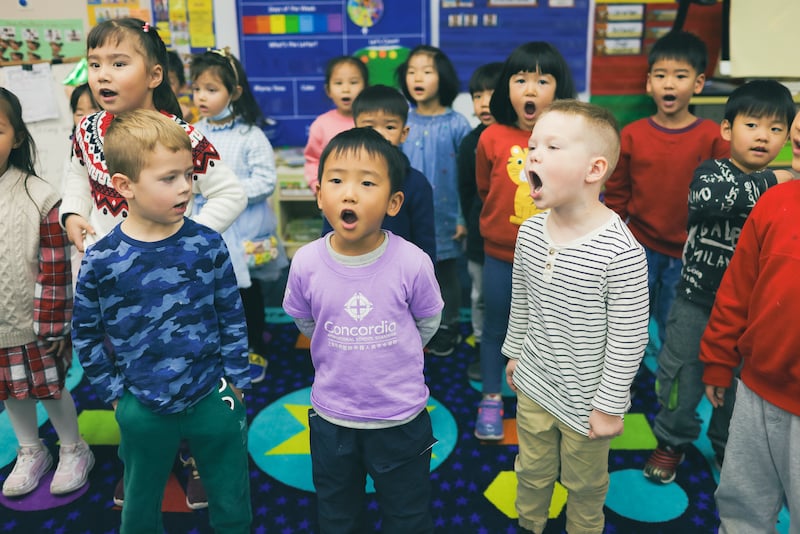Singing songs with children in the Early Childhood classrooms is more than just fun! It’s a powerful teaching tool.
This week’s Tuesday Tip investigates the research and benefits singing has on a child’s ability to learn many things, including learning the English language.

Singing is fun for most adults and children.
Research has proven that singing has many health benefits. Rebecca Joy Stanborough published an article for the website Healthline.com which lists the several health benefits of singing for people of all ages. Her article also shares great ideas for coping with the challenges within our current time, so be sure to browse through the article all the way to the end, to enjoy her presented strategies. It’s quite remarkable how the simple act of singing can provide so many physical and mental rewards.
However, singing is also a powerful teaching and learning tool. One author sums up the benefits so well, I felt compelled to pass her ideas along to you for your reading and consideration. Tanja Mcilroy wrote a comprehensive article on the website EmpoweredParents.com. In her wonderful summary of the benefits of learning via singing in the Early Childhood classroom she clearly and succinctly presents valid findings which are applied in our EC Division classrooms.
Singing as a family or a class builds psychological and social benefits.
Professor Graham Welch in the Institute of Education at the University of London wrote the following in his publication in February, 2012. He wrote: (Singing as a community develops):
- Intra-personal communication and the development of individual identity, both in music and through music Confident and healthy voice use links to a positive self-concept and an ability to communicate. Successful singing promotes selfesteem, general confidence and also self-efficacy. The voice is a key component of who we are; its use reflects our mood and general psychological wellbeing, communicated to ourselves as well as to others.
- An enhanced sense of social inclusion. Successful singing ability is strongly correlated with a positive sense of social inclusion, of a feeling of belonging to our community. Singing with others enhances the possibilities of empathic relationships with those around us. Collective singing, such as in a choir or small group, generates a positive group identity, as well as physical and psychological benefits.
Would you like a few resources for singing at home? Spotify has many playlists for early childhood singing. Some are embodied in this article from the blog TooSmall.org.
In closing, I hope this article encourages you to sing with your children and family and even by yourself. Here in the Early Childhood Division classrooms, we sing often and for many academic and celebratory reasons. I hope this week’s Tuesday Tip brings a little joyful consideration to your week and to your journey of parenting.




